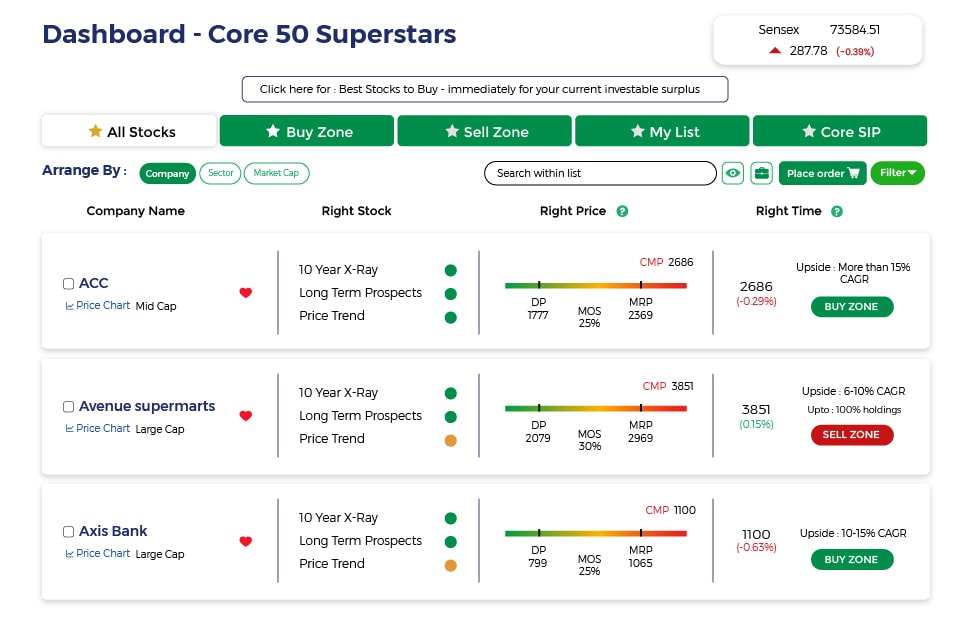In previous articles of the series, we understood the role played by ‘Value Creation’ and certain key financial parameters in identifying the ‘Right Stock’. In this article, we will be looking at a qualitative factor which is a crucial ingredient in the Right Stock recipe – the quality and competence of the management team.
Why is Management Quality and Competence important?
Often, we hear instances, where seemingly good companies compromised the interests of the investors. If you are even faintly acquainted with the stock market, you have doubtlessly heard of the Enron scandal, which shocked the stock markets all across the world in 2001. Closer to home, our own stock markets were rocked when the Satyam Computers scam was unearthed in 2008.
Events like these shake up the investor confidence and shareholders, who now, are increasingly alive to this problem. Hence, to avoid your returns from being compromised by management mishaps, it is important to check a company’s management quality and competency to know if it really is the Right Stock or not.
How to Judge Management Quality:
Evaluating management quality is largely a subjective study. Hence to make it simpler, we have broken it down into 5 parameters that truly matter:
Corporate Governance
In simple words, Corporate Governance is a set of guidelines (legal or otherwise) that companies need to follow to assure the investors that there is no conflict of interests between the company’s plans and the expectations of the investors.
Thus, Corporate Governance plays an integral role, as it reflects how a company’s management and its board interact with each other and with external parties (like the shareholders), with the ultimate goal of reducing conflicts of interests and acting in the best interests of shareholders.
Key corporate governance components to look for, in each company, are:
- A separate Chairman and a Chief Executive Officer.
- More than 33% of the board should be constituted by independent non-executives.
- An audit committee, majority of whose members are independent non-executives.
- Remuneration paid to the directors of the company should be disclosed.
Companies that openly flout Corporate Governance guidelines, give the impression that they care very little about the best interests of investors at heart and hence, should be avoided by the fundamental investor.
Board of Directors Credentials
The investors appoint the Board of Directors to ensure that the company is run professionally and the wealth of their experience and industry expertise will bring prosperity to the company and consequently to its shareholders.
The Board is expected to exercise business judgement independently for the long-term interests of the company and its shareholders. But, often we see some dumbfounding changes on the Board of a company which leads to the question, if the management is truly acting in the interests of the shareholders or furthering their own personal goals. Hence, it is important to ensure that the individuals on the board are competent enough as measured by their qualifications and experience to take the company forward.
Transparency
Transparency refers to the conviction with which the management spells out its future plans – in the shareholders’ meetings, conference calls and annual reports. To be able to act in the shareholders’ interests, it is important for the management of the company to be erudite with its projections.
A failure to do so could mean that the management is either unclear on its future plans or it has something to hide or both. Lack of transparency, thus, is a major disqualifier in the Right Stock selection.
Integrity
In the context of analysing management trustworthiness, Integrity is a fairly broad concept.Lack of Integrity includes several management malpractices, such as:
- Members of the management involved in scams/accounting malpractices.
- Company auditors expressing their concerns by declaring the company accounts as ‘qualified’.
- Unjustified, significant asset write-offs/dividend pay-outs (e.g. paying dividends when the company is making losses).
Promoter Holdings
As the term suggests, Promoter Holdings is the percentage of the total shareholding of the company, held by the promoters of the company. Promoter Holdings is a slippery concept, where ideally the promoter should hold neither too much nor too less of the total shareholding.
Should the Promoter Holdings be too low (and successively decreasing), it sends a red flag to the investors that the promoter is most likely to find a revenue generating platform elsewhere. On the contrary, should the Promoter Holdings be too high, it again appears as though the promoter wants to indulge himself the high stake and the control that it brings. A Promoter Holding between 35%-65% is a considered ideal.
The other issue to be equated to Promoter Holdings is ‘pledging’ of own shares by promoters. Pledging shares with financial institutions to raise funds either for company requirements or due to personal reasons, is almost always a bad sign. Even if the funds are raised to meet the company requirements, it does signal liquidity problems in the company. And the scenario, in which the promoter sells his stake to clear his debts, is definitely a bad one, which can be identified by analysing the balance sheet. If the balance sheet is not stressed, most likely pledging has been done to clear personal debts.
The above mentioned five parameters can help you evaluate the quality of the management of a company. The management plays a crucial role in determining the fortune of the company and its investors, making it an important component of a ‘Right Stock’.
Already have an account? Log in
Want complete access
to this story?
Register Now For Free!
Also get more expert insights, QVPT ratings of 3500+ stocks, Stocks
Screener and much more on Registering.








 Download APP
Download APP






















Comment Your Thoughts: